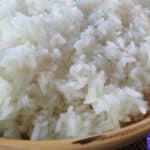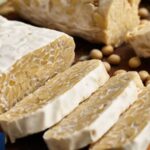Probiotics are a common term nowadays. A probiotic is a live microorganism that supports gut health and restores gut flora. Probiotics, in simple terms, are beneficial bacteria that support healthy digestion. There’s a new probiotic star or something we don’t know about.
Prebiotics are now being used in conjunction with well-known probiotics. Prebiotics are food that provides fuel for good bacteria. Prebiotics are made from a fiber the body can’t digest. They act as food for probiotics when they reach your digestive tract.
Prebiotics and probiotics work together to create the perfect environment for healthy digestion and a healthy gut. Probiotics are commonly found in fermented foods such as yogurt, tempeh, and sauerkraut. Prebiotics are more common in fiber-rich foods than in fermented. Consider whole grains, vegetables, and matcha. Let’s continue; is matcha good for gut health?
Prebiotics and Their Health Benefits
Prebiotics can have many other benefits than supporting probiotics, their microorganism counterparts. Prebiotics are known to improve the function of the digestive tract and boost the immune system. Both direct and indirect effects
Prebiotics stimulate the activity of gut-associated Lymphoid tissue (GALT), which confers a sense of well-being.
Prebiotics play an essential role in digestive health and can prevent colorectal cancer and IBS. They modify the activity of the gut flora. Prebiotics are a way to say that they keep your gut in control and ensure that it functions as intended.
Prebiotics can also be used to reduce constipation and aid in weight loss. Although constipation may seem like an unintended side effect of probiotics flourishing, how about weight loss? Prebiotics won’t make you run to the toilet.
Inflammation is often caused by microorganisms living in the gut. This can cause problems with the metabolism of sugar and fat absorption. Prebiotics improve the gut barrier and promote weight loss by reducing intestinal inflammation. In layman’s terms, prebiotics encourages your gut to absorb less fat.
Prebiotics are known to have other health benefits than just their impressive list. They can also aid in absorbing and metabolizing minerals like calcium, magnesium, and others. Prebiotics not only help your gut reject the bad stuff but also aid in absorbing good nutrients. Prebiotics help your gut work smarter and not harder.
Drink Some Prebiotics
You can always find fiber-rich or fermented foods for your daily dose of good stuff. They are the dynamic duo that is gut health. There is a more straightforward way to ensure your digestive system functions at its best—green tea or, even better, matcha.
Matcha isn’t just rich in prebiotics. Matcha is what we refer to as a synbiotic. Synbiotics combines prebiotics and probiotics: two birds, one stone.
Read More:
Best Probiotic for Gut Health and Weight Loss: An Ultimate Guide 2022
Game, Set, Matcha!
Matcha’s reputation as a healthy drink seems to be growing each day. We like to keep up to date. Matcha’s prebiotics is just one aspect of the powerful health benefits it offers.
Matcha is rich in prebiotics and has other health benefits. EGCG, caffeine, and other ingredients work together to boost metabolism. They can also help with weight loss by cutting down on unhealthy cravings. This is paired with the high level of prebiotics in matcha, and matcha is an excellent choice for gut health.
Matcha has a higher level of prebiotics than other beverages like green tea, which is just one of matcha’s health benefits. Prebiotics are naturally found in green tea leaves. However, green tea is not a full cup. The leaves are brewed quickly and then tossed aside. Matcha is a whole leaf that you consume, which means it contains much prebiotics.
Matcha is an excellent way for you to start to improve your prebiotics.
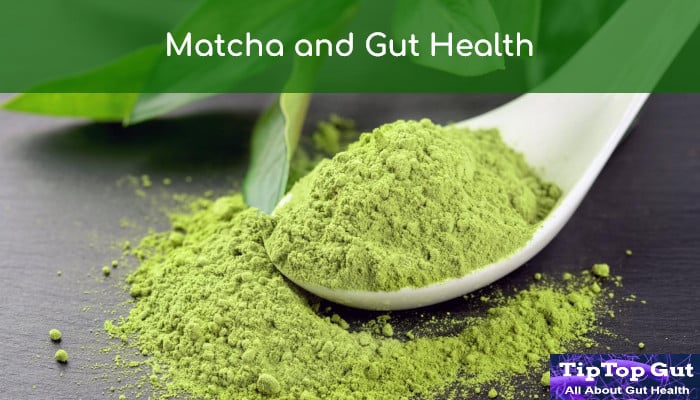
Is Matcha Good for Gut Health? Gut Health and Matcha Green Tea
Greek physicians said all diseases start in the stomach. This is more than 2,000 years old. Polyphenols are digestive compounds found in the tea plant.
Because it operates independently of the brain, our internal ecosystem is known as “the second brain.” The length of the intestine is approximately 10 m (33 feet) and is home to 100 to 1,000 trillion bacteria. It weighs between 1.5 to 2 kg (3 lbs.) to 4 lbs. The human body contains approximately 60 trillion cells.
However, the bacteria found in the intestine is more than in the human body. This ecosystem is home to more than 30,000 bacteria species. They interact with one another and form a fascinating internal ecosystem. The healthy intestinal flora includes bacteria that are 20% beneficial for human health, 10% dangerous, and 70% neutral.
It becomes problematic when harmful bacteria grows. When you drink matcha tea, as opposed to other teas, you consume the leaf as a fine powder, which concentrates the health benefits. Our microbiota, or the bacteria, viruses, and fungus that live in our intestinal tract, is referred to as gut health.
Black, green, oolong tea, and Matcha teas are all made from the leaves of Camellia sinensis plants. By boosting the population of good bacteria in the intestines, green tea consumption enhances gut health. Read more about the best best herbal teas for gut health here; Best Herbal Tea for Gut Health: 15 Best Teas for Gut & Digestive Health
The intestine controls 70% of our immune system. Healthy intestines mean a strong immune system. Research continues to reveal the connection between certain bacteria strains and specific aspects of health, both mental and physical.
Numerous health issues have been linked with gut imbalances: chronic fatigue, fibromyalgia, and rheumatoidarthia, diabetes, obesity, allergies to autoimmune diseases, hormonal imbalances. Regular green tea is prepared by steeping the leaves in water and drinking the resulting beverage. Green tea leaves are used to make matcha, but they are ground into a powder first and then added directly to water or milk.
The intestine produces serotonin, also known as the “happy hormone,” and contributes to a feeling of well-being. It also regulates mood and emotions. It is believed that 90% of serotonin can be found in the digestive system.
It is now up to us to improve our overall health and longevity by increasing the number of good bacteria in our overall health gut. According to studies, drinking green tea helps enhance the gut’s population of beneficial Bifidobacteria. Probiotics of the bifidobacteria kind have received substantial research.
Fermentable fibers and fermented probiotic foods are suitable for friendly bacteria. All dietary fibers can be digested in the small intestine. Fermentable fibers support the growth and development of native intestinal bacteria.
They also yield high amounts of short-chain fatty acids that protect the gut lining and lower the pH. This creates an environment for friendly bacteria to thrive. How quickly and quickly your intestinal bacteria recover depends on what you eat during antibiotic treatment or colonoscopy. Probiotics and fermented food are good options, as well as fiber-rich foods.
Green tea is good for your digestive health. It has been consumed since its inception thousands of years ago when it was first used in India and China. Green tea is still a great aid to digestion. It is very usefull for gut health. You may also read; Is Green Tea Good for Gut Health? Latest Study Shocked Me (2022)
The Camellia Sinensis leaves produce green tea, black tea, and matcha. Every tea is unique because each one has a unique production process.
Quality matcha tea is not only delicious for its epicurean pleasures but also great for your health in many other ways. Matcha’s power is due to its ability to grow in the shade. This increases its levels of theanine, as well as antioxidants. Matcha is the actual leaf in fine powder form. This gives you many health benefits.
The Journal of Nutritional Biochemistry published a study that found green tea intake improved gut health through the growth of healthy bacteria in the intestines. The Ohio State researchers were initially interested in the effects of green tea on weight gain.
One group of mice was fed a standard diet while the other was fed a high-fat diet for eight consecutive weeks. Half of the mice in each group had green tea extract added. The other half did not. The mice fed high-fat diets lost 20% and showed lower insulin resistance when given green tea extract.
Researchers also found that mice fed high-fat green tea and regular diet green tea had less leaky gut symptoms. They also had healthier bacteria. “This study shows that green tea promotes good gut bacteria growth, which leads to a number of benefits that significantly lowers the risk of obesity,” stated Richard Bruno (a professor at Ohio State University and lead author of the study) in a statement.
Is Matcha Better than Green Tea?
It is! The whole leaf of green tea leaves can be consumed as a leaf or powder. Each gram contains one-half gram of fiber. This is equivalent to 23g of fiber in sweet potatoes, approximately 2 inches in diameter by 1 inch in length. The matcha’s high level for polyphenol concent can eliminate halitosis by altering the sulphur components of odorants.
Many foods contain antioxidants. These include fruits and vegetables, whole grains, nuts, whole grains, meats, poultry, fish, and other food items. Matcha, however, is fantastic food. According to the ORAC test, matcha green tea has 1384 units of antioxidants per gram. This test measures the levels of antioxidants in foods. This is 13x the antioxidants found in pomegranates and 15x those of blueberries. It’s also 125x the antioxidants found in spinach.
Matcha is also rich in polyphenols. These naturally occurring compounds are found in tea plants and are thought to be responsible for some of the health benefits associated with a diet high in fruits and vegetables. Our gut bacteria break down these polyphenols into bioactive, polyphenol-derived metabolites. These polyphenols increase the number of beneficial bacteria while inhibiting potentially harmful bacteria growth.
Matcha can increase thermogenesis, which is the body’s rate of burning calories. It can range from 8% to 10% of daily energy expenditure to 35% to 43%.
Matcha is a superhero, that’s all! Matcha tea is easy to make, making it easy to incorporate into your daily routine and add some extra goodness.
Read More:
Is Ginger Good for Gut Health? 18 Amazing Benefits of Ginger
Best Herbs for Gut Health: Boost Gut Health With Herbs (2022)
Do Tomatoes Cause Inflammation of the Stomach? Amazing Facts Revealed! 2022
Are Pickles Good For Gut Health? Amazing Facts about Pickles & Gut Health 2022
Best Over the Counter Probiotic for Gut Health: Easy Guide 2022
Sources and References
At TipTop Gut, we rely on peer-reviewed studies, academic research institutions, and medical associations. We avoid using tertiary references.
-
Weiss DJ, Anderton CR. Determination of catechins in matcha green tea by micellar electrokinetic chromatography. J Chromatogr A. 2003 Sep 5;1011(1-2):173-80. doi: 10.1016/s0021-9673(03)01133-6. PMID: 14518774.
-
Venables MC, Hulston CJ, Cox HR, Jeukendrup AE. Green tea extract ingestion, fat oxidation, and glucose tolerance in healthy humans. Am J Clin Nutr. 2008 Mar;87(3):778-84. doi: 10.1093/ajcn/87.3.778. PMID: 18326618.
- Jin, J. S., Touyama, M., Hisada, T., & Benno, Y. (2012). Effects of green tea consumption on human fecal microbiota with special reference to Bifidobacterium species. Microbiology and immunology, 56(11), 729-739.
- Ohio State University. “Green tea cuts obesity, health risks in mice: Follow-up study in people underway.” ScienceDaily. ScienceDaily, 14 March 2019. <https://www.sciencedaily.com/releases/2019/03/190314075804.htm>.
- Eunhee Chung, Salvatore N. Campise, Hayli E. Joiner, Michael D. Tomison, Gurvinder Kaur, Jannette M. Dufour, Lillian Cole, Latha Ramalingam, Naima Moustaid-Moussa, Chwan-Li Shen,
Effect of annatto-extracted tocotrienols and green tea polyphenols on glucose homeostasis and skeletal muscle metabolism in obese male mice,
The Journal of Nutritional Biochemistry,
Volume 67,
2019,
Pages 36-43,
ISSN 0955-2863,
https://doi.org/10.1016/j.jnutbio.2019.01.021.
(https://www.sciencedirect.com/science/article/pii/S0955286318311203)

![Is Matcha Good for Gut Health? Interesting Facts Unveiled [2022]](https://tiptopgut.com/wp-content/uploads/2022/10/is-matcha-good-for-gut-health-Matcha-and-Gut-Health-TipTopGut.com_.jpg)

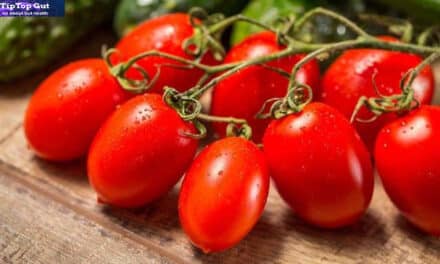
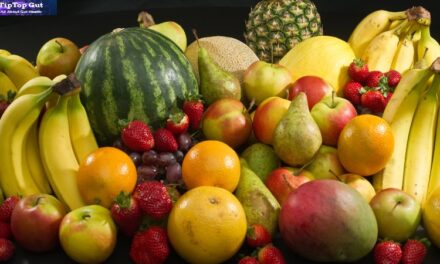
![Are Beans Good for Gut Health? Best Source of Dietary Fiber [2022]](https://tiptopgut.com/wp-content/uploads/2022/09/Are-Beans-Good-for-Gut-Health-TipTopGut.com_-440x264.jpg)






